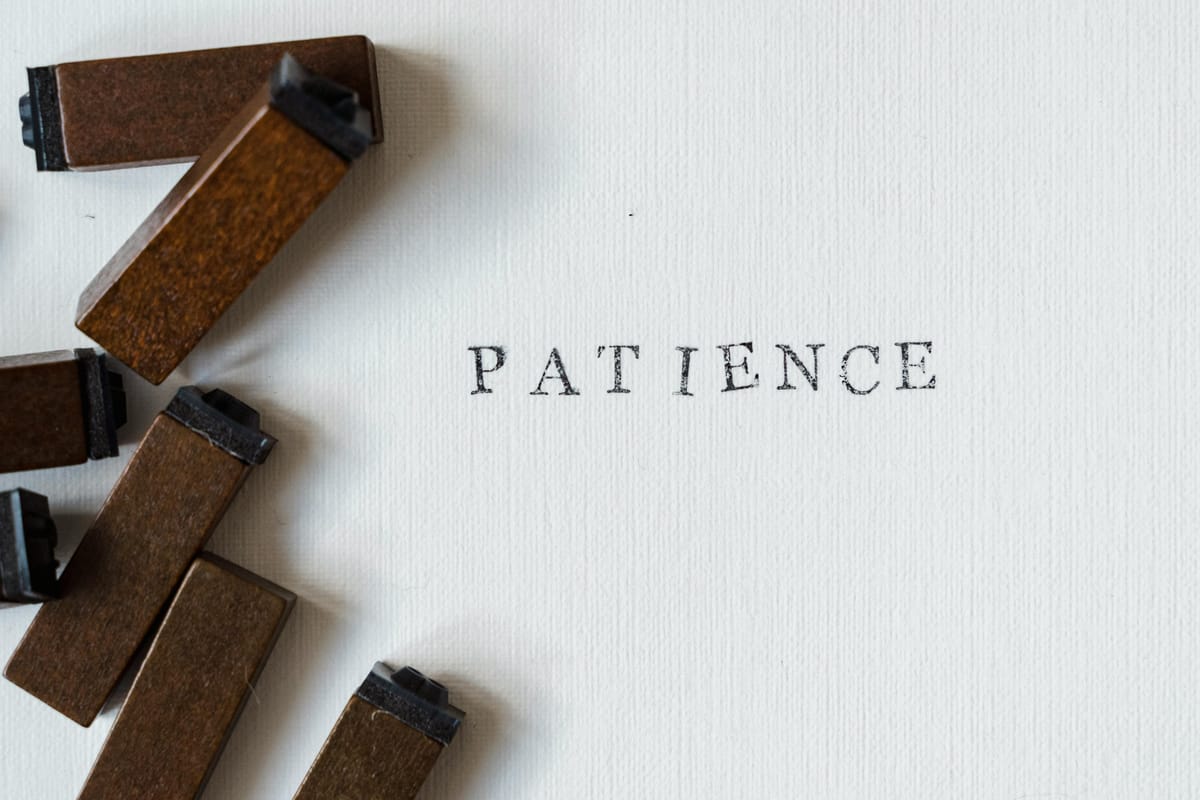The Art of Managing Patience: A Path to Personal Growth

We often hear about the virtues of patience. "Good things come to those who wait," they say. But what if I told you that learning to manage patience is even more valuable than simply being patient? Let's explore why developing the skill of patience management can be a game-changer in your personal and professional life.
The Shift from Having Patience to Managing Patience
Being patient is undoubtedly a positive trait. It helps us stay calm in stressful situations and avoid rash decisions. However, managing patience takes this concept a step further. It's about:
- Recognising when patience is needed
- Actively choosing to be patient
- Understanding the appropriate duration for patience
- Knowing when to take action instead of waiting
By mastering these aspects, you're not just passively enduring; you're strategically navigating life's challenges.
Benefits of Managing Patience
1. Enhanced Decision Making
When you manage patience, you give yourself time to gather information and consider multiple perspectives before making decisions. This leads to more informed choices and better outcomes.
2. Improved Relationships
By consciously managing your patience in interactions with others, you create space for empathy and understanding. This can significantly improve both personal and professional relationships.
3. Reduced Stress
Instead of feeling frustrated by delays or setbacks, managing patience allows you to approach challenges with a calm and collected mindset, reducing overall stress levels.
4. Increased Productivity
Contrary to what you might think, managing patience can actually boost productivity. By knowing when to wait and when to act, you can allocate your time and energy more efficiently.
5. Personal Growth
The process of learning to manage patience encourages self-reflection and emotional intelligence, contributing to overall personal growth and maturity.
Patience in Pursuit of Goals
While patience is crucial, it's equally important to balance it with action when pursuing your goals. Here's how:
- Set clear, achievable goals
- Break them down into manageable steps
- Establish realistic timelines
- Practice patience during inevitable setbacks
- Celebrate small victories along the way
Remember, patience doesn't mean inaction. It means persevering through challenges and continuing to work towards your objectives, even when progress seems slow.
The Power of Journaling in Managing Patience
One effective tool for developing and managing patience is journaling. Here's how it can help:
- Self-reflection: Writing about your experiences helps you identify patterns in your behavior and emotions, including impatience triggers.
- Gratitude practice: Regularly noting things you're grateful for can shift your perspective and increase your capacity for patience.
- Goal tracking: Documenting your progress towards goals can help you stay motivated during periods that require patience.
- Emotional release: Journaling provides a healthy outlet for frustrations, reducing the likelihood of impulsive actions.
- Strategy development: Use your journal to brainstorm and refine strategies for managing patience in different situations.
To get started with journaling for patience management, try setting aside 10-15 minutes each day to write. Reflect on situations where you practiced patience, moments where you struggled, and your progress towards long-term goals.
By combining the art of managing patience with the practice of journaling, you're setting yourself up for personal growth, better decision-making, and a more balanced approach to life's challenges. Remember, it's not just about waiting—it's about waiting wisely.
Ready to start your journey towards better patience management through journaling? Join Sharings.Me today and connect with a community of like-minded individuals who are also on the path to personal growth and self-improvement!




